
Scotland’s King James IV was a quintessential Renaissance prince, ruling his kingdom in an era when the great works of Greece and Rome were being recovered and classical culture reborn across Europe. He vigorously supported the new learning, but a king’s first and foremost role in that day was that of war-leader, and James was every bit the warrior-monarch.
He adopted new weapons and tactics for his army, and poured vast resources into developing a national navy for Scotland that could compare with that of young King Henry VIII in England, Scotland’s larger and more powerful neighbour to the south.
There had already been much conflict between England and Scotland for hundreds of years. In 1502, an attempt was made to bring calm to long-troubled AngloScottish relations with the nations entering into the Treaty of Perpetual Peace, which saw James IV wed to Henry VII’s daughter Margaret Tudor (also the sister of Henry VIII) in the next year. While this agreement was not without its merits, it created an obvious threat to Scotland’s long-standing alliance with France should events force James to choose between peace with England or his connections with the French.
Centuries earlier, Scotland and France had entered into the Treaty of Paris in 1295, which called for either to come to the aid of the other in times of war with England. This was the beginning of what was known in Scotland as the ‘Auld Alliance’, and it would play a significant role in the Flodden campaign. In 1513 Henry VIII, eager for martial glory, departed for France as part of his commitment to the anti-French Holy League. In response, James declared war against his brother-in-law, mustered his army in late July and struck into Northumberland in the north of England in a bid to show his support for his French allies.
Organising for war
This story is from the {{IssueName}} edition of {{MagazineName}}.
Start your 7-day Magzter GOLD free trial to access thousands of curated premium stories, and 9,000+ magazines and newspapers.
Already a subscriber ? Sign In
This story is from the {{IssueName}} edition of {{MagazineName}}.
Start your 7-day Magzter GOLD free trial to access thousands of curated premium stories, and 9,000+ magazines and newspapers.
Already a subscriber? Sign In
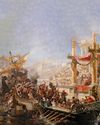
NAUMACHIA TRUTH BEHIND ROME'S GLADIATOR SEA BATTLES
In their quest for evermore novel and bloody entertainment, the Romans staged enormous naval fights on artificial lakes
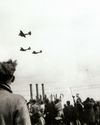
OPERATION MANNA
In late April 1945, millions of Dutch civilians were starving as Nazi retribution for the failed Operation Market Garden cut off supplies. eet as In response, Allied bombers launched a risky mission to air-drop food

GASSING HITLER
Just a month before the end of WWI, the future Fuhrer was blinded by a British shell and invalided away from the frontline. Over a century later, has the artillery brigade that launched the fateful attack finally been identified?
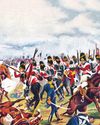
SALAMANCA
After years of largely defensive campaigning, Lieutenant General Arthur Wellesley went on the offensive against a French invasion of Andalusia

HUMBERT 'ROCKY'VERSACE
Early in the Vietnam War, a dedicated US Special Forces officer defied his merciless Viet Cong captors and inspired his fellow POWs to survive
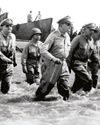
LEYTE 1944 SINKING THE RISING SUN
One of the more difficult island campaigns in WWII's Pacific Theatre saw a brutal months-long fight that exhausted Japan’s military strength

MAD DAWN
How technology transformed strategic thinking and military doctrine from the Cold War to the current day
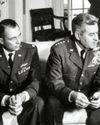
BRUSHES WITH ARMAGEDDON
Humanity came close to self-annihilation with the Cuban Missile Crisis, Broken Arrows’ and other nuclear near misses
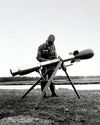
THE DEADLY RACE
How the road to peace led to an arms contest between the USA and USSR, with prototypes, proliferation and the world’s biggest bomb

THE MANHATTAN PROJECT
Einstein, Oppenheimer and the race to beat Hitler to the bomb. How a science project in the desert helped win a war